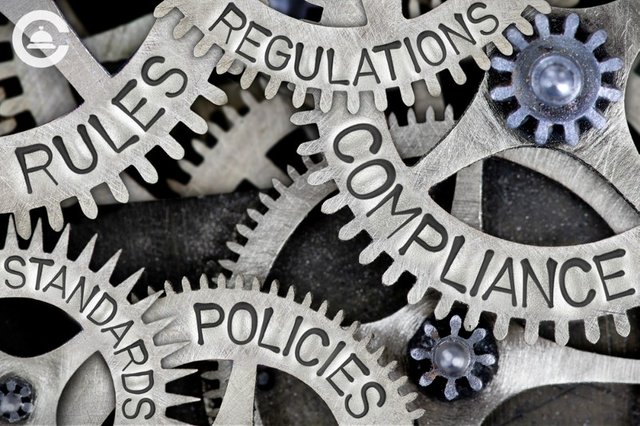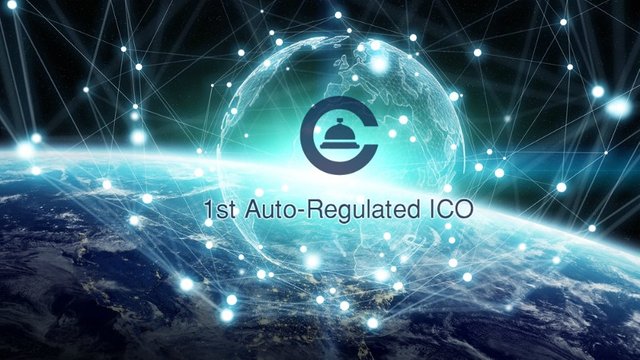Regulations: Crypto Blocks in Chains?
Regulations: Crypto Blocks in Chains?

Whenever the crypto market starts to bleed, it’s always one of two things; either some bigwig are either attacking the legitimacy or future of cryptocurrencies, or the government is about to send a new sheriff into town — and y’all can stop horsing around. This time, though it’s not just a single sheriff that may be coming into town, it’s The Three Guardsmen; regulation, taxation, and compliance.
The financial industry is the bedrock of modern economy. Everything that’s been ever built was built on hard work, ingenuity and a “whole lotta bills to grease the wheels”. As pointed out by University of Warwick’s Mark Taylor“Financial markets help economies to grow by mobilising savings so that consumption can be higher in the future as a result of investments made today. Financial markets help global growth by sending savings from countries with little room for further investment, to countries with more room than current savings can satisfy”. The critical importance of this industry and the devastating consequences whenever it fails — à la 2007–2008 financial meltdown — is the reason why the industry remains the most regulated industry in the world because “When financial markets malfunction seriously, the real economy takes a nosedive”

Regulations prevents market participants from granting themselves special privileges and lays down rules for what goods and services are made available to the market, how they are made available and marketed, safety standards, and consumers rights. That is when they work.
Regulations aims not only to protect consumers from harmful practices, but also citizens and the environment from the effect of these practices. Balancing the interest of unsophisticated consumers of financial products with the motives of the sophisticated sellers remains the key function of financial regulation. However, this is not often the case with certain regulations. Labor unions have been known to successfully lobby for regulations that grants members exclusive rights and access to certain jobs to the detriments of other skilled members of the society. Local content requirements imposed to boost domestic industry which often have unintended consequences resulting in letter-of-the-law workarounds (contents created elsewhere and reassembled down here) or black market proliferations.
So Why Regulate?

Mark Taylor goes on to say “Finance is part of the information industry. If the right borrowers and investors could find each other easily enough, we would not need banks. Until this happens, we need banks to allocate investment and savings across time and space and to package savings and investments in a way that facilitates transactions. This is a critical function”. Thus until the right market participants can find each other without any mediator, the current regulatory climate will continue to exist. But doesn’t the blockchain make it possible for market participants to find each other and transfer values without mediators? Aren’t smart contracts making it possible to engage anybody from anywhere without breach of trust?
Introducing Auto-Regulation
Regulation should correct unequal income and wealth distribution, boosts economic and employment models that are self-sustainable. It should also protect both consumer and market interests, set fair exchange rates for goods and services, and be free from prejudice and manipulation. Blockchain technology and smart contracts meet these requirements, however, their potentials are yet to be truly realized until now.
ConnectJob, The World’s First Auto-Regulated ICO

Developed on a decentralized platform which no single entity or authority can control or lay claim to, ConnectJob is the world’s first auto-regulated platform for the service industry. Utilizing the latest breakthroughs in geolocation and autonomous smart contracts, ConnectJob allows users from anywhere in the world to exchange services and values. The platform’s unique reputation system that has been hard-baked into the blockchain secures all users identities and ensures that users are not only who they claim to be, but their work ethics are also reflected for all users to see. This newfound, immutable level of transparency for the service industry is the foundation of a trustless ecosystem where a jobber’s suitability and performance are no longer a game of dice.
An Auto-Regulated Token Sale

ConnectJob pre-sale event is now live. The frictionless CJT are being offered at 2400CJT/ETH with 20% bonus. Contributors can contribute to the sales which is now halfway through its $7 million soft cap through Ethereum(ETH), Bitcoin (BTC), Litecoin (LTC), Dash (DASH), or in fiat (USD/EUR)! ICO runs from 12/01/2017 to 04/30/2018.
Thanks for all your help Sr
Thanks @julian.alejandro we are all connected!